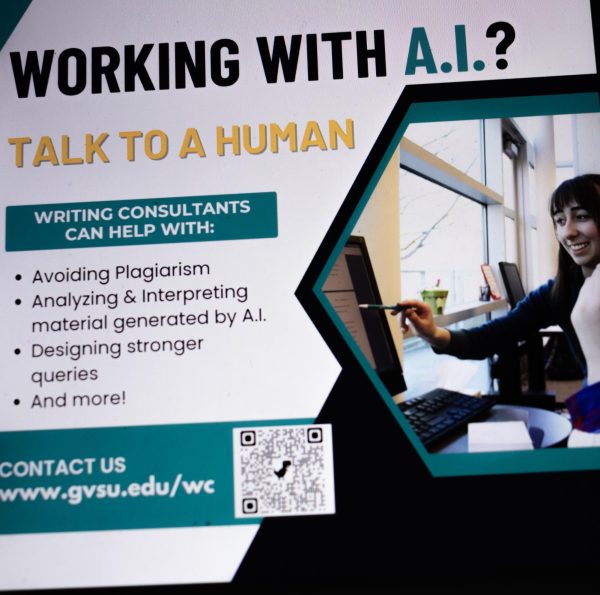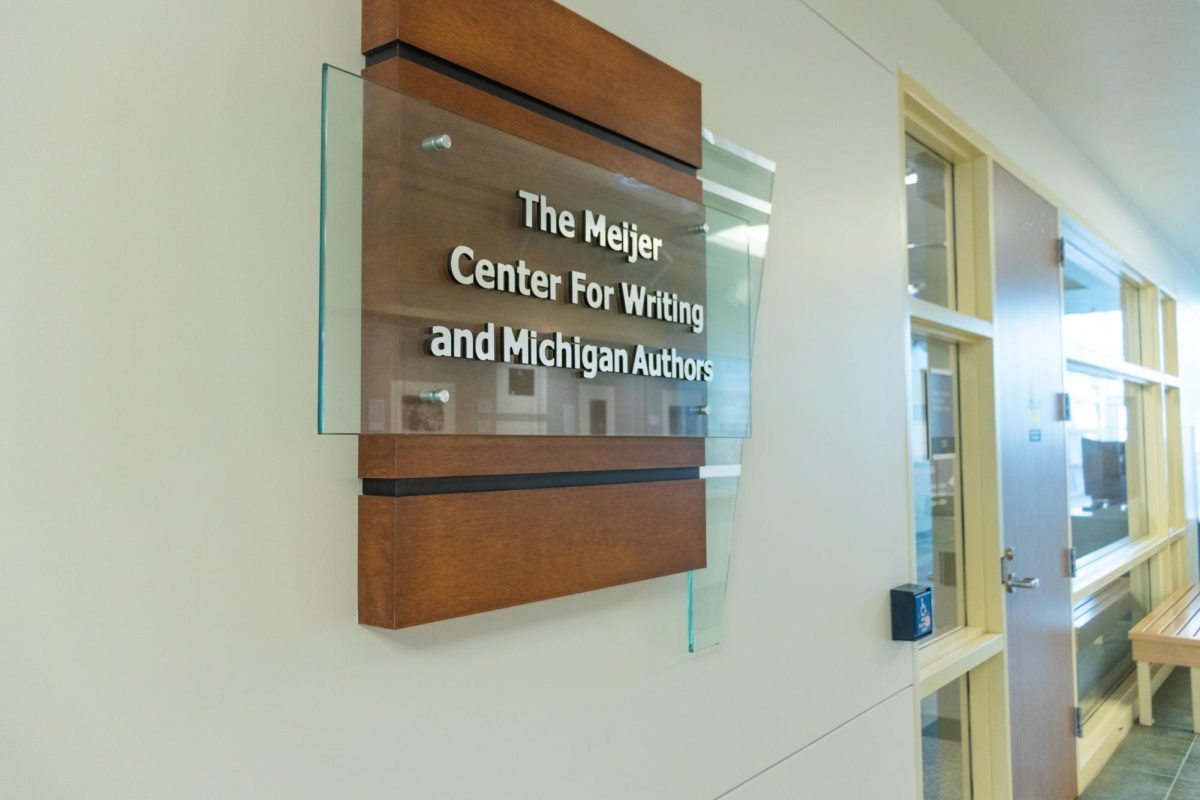In response to growing popularity and capabilities of Artificial Intelligence tools like ChatGPT, Grand Valley State University academic support workers are now being trained to use AI to guide their peers in completing their assignments.
Campus resource centers like the Knowledge Market and Fred Meijer Center for Writing and Michigan Authors are now implementing these tools into their daily practices. Student workers are being trained how to utilize these tools to promote student success and academic honesty.
“Right now, there’s a mix of trepidation and resignation, but I have seen more faculty starting to look for ways to incorporate AI, particularly ChatGPT, into their assignments. I really like this trend because it shows the students we are on their side,” said GVSU English, Writing and African American Studies Librarian Mary Ruge. “We aren’t trying to hide resources or forbid them from using it but helping them understand how to use it. Like most technology, there are digital literacy concerns, but that’s where we, as faculty, can step in and teach them how to get the most from it.”
Faculty members like Ruge will continue to have conversations about AI’s place in the classroom and academic support systems as its’ use spreads. This is, in part, is why the Fred Meijer Center for Writing and Michigan Authors has created a new policy for working with AI assisted tools. The new policy places individual faculty preference first.
“I understand the fear that students might use tech like ChatGPT to plagiarize, but we can’t let the fear of what ChatGPT might be used for overshadow the benefits it can provide to students involved in the research process,” Ruge said. “I am proud that the GVSU faculty I have spoken with aren’t outright condemning ChatGPT, but are making efforts to learn how to use it. It really shows that our faculty is student-focused and, themselves, willing to evolve and meet the students where they’re at.”
GVSU’s Department of Writing advises students to “use AI critically and cautiously” and “cite all interactions with AI.” The writing center is working towards creating a citation guide to reflect this in Chicago, MLA and APA styles.
The Knowledge Market is also training their employees on effective and responsible use of AI. Knowledge Market Director Jennifer Torreano said student workers are capable of helping students fact check AI generated information.
“When AI gives information with no citation—or worse, a hallucinated citation—research consultants can help students find credible information on the topic. The information found may confirm or dispute what an AI tool has stated. Regardless, research consultants can help students document these credible sources using whatever style is required for the class,” Torreano said.
For students and faculty interested in learning more about how AI can be integrated into their lives, Torreano suggests attending a workshop entitled “Ethical and Effective Use of Artificial Intelligence” on Oct. 26. This is a part of the larger event series called Level Up Your Tech Skills co-hosted by the Knowledge Market’s Digital Creator Lab and Tech Showcase.
“I don’t think anyone knows how AI will be used in education in the future. The technology is brand new, and we are all still evaluating its possibilities and pitfalls,” Torreano said. “These things will also change as AI evolves, so I expect the conversation to continue for many years.”
















